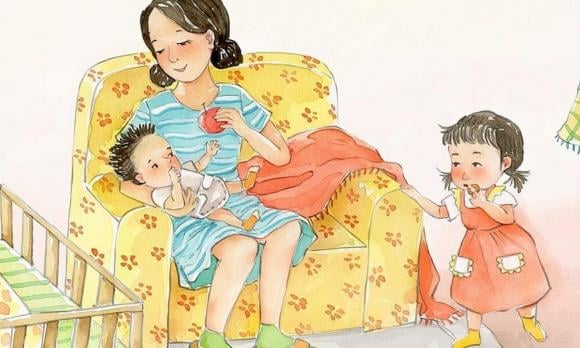With societal advancements and the influence of various factors, the emphasis on the gender of an unborn child has lessened.

Disagreements Arise Over the Gender of the Firstborn
For instance, some families believe that if their firstborn is a boy, there will be less psychological pressure when having a second child. So, does the gender of the firstborn have any impact on the family?
Mother-in-Law’s Disappointment: A Girl, Not a Boy
When Xiao Xia was pregnant, her mother-in-law, noticing her round and large baby bump, rejoiced and assured her that it was certainly a boy. She also instructed Xiao Xia to take good care of the baby. The husband, overhearing this, expressed his preference for a girl, despite doubting the accuracy of the prediction. Thus, Xiao Xia’s pregnancy was filled with her mother-in-law’s joy and her husband’s disappointment.
On the day of delivery, however, there was a surprising twist. The baby turned out to be a girl, and the husband immediately embraced his “little cotton jacket.” Conversely, the mother-in-law was disappointed and showed no interest in getting close to her granddaughter.
Firstborn’s Gender Doesn’t Matter: A Shift in the Mother’s Mentality
In the minds of older generations, there is still a preference for boys over girls. Although the policy on having a second child has been liberalized, if the firstborn is a girl, it is seen as a symbol of the family not being “protected” in the eyes of the older generation. The possibility of not having a boy as the second child increases the pressure on the husband’s family to have a male heir.
Hence, the older generation, and some young people today, prefer a boy as the firstborn. As a result, when the first child is a girl, the old beliefs and other pressures weigh heavily on the mother, leading to increased psychological stress, especially when having a second child, where there is a strong desire for a boy.
If the firstborn is a boy, the mother will be relatively more relaxed when having a second child, and some may even choose not to have another. This is a very common phenomenon. Of course, there are also families who do not care about the gender of their children at all.
Beyond the Mother’s Mentality: Numerous Differences Between a Boy and a Girl as the Firstborn
Differential Treatment of the Mother
For mothers with a firstborn son, the mother-in-law tends to be more caring and treats them with higher “quality.” For example, she may show more respect for their psychology and give them a bigger say in family matters.
On the other hand, if the firstborn is a girl, the mother-in-law may psychologically disregard the daughter-in-law. The mother may be neglected by her in-laws in daily conversations and tasks and even forced to have a second child.

Raising a Boy or a Girl as the Firstborn: What’s the Difference?
Varied Pressures on the Couple
When the firstborn is a boy, the couple may easily decide whether or not to have a second child. However, if the second child is also a boy, the psychological pressure and financial burden on the family will increase.
Differences in Children’s Upbringing
Family relationships such as “brother-sister” or “sister-brother” dynamics have varying impacts on children’s personalities and behaviors. For instance, in a “brother-sister” dynamic, the younger sister may be doted on as a little princess, whereas, in a “sister-brother” dynamic, the older sister often develops a stronger character.
The combination of different family relationships means that parents who wish to intervene in their children’s personality development should seize this stage. Essentially, what’s more important is providing financial and material support to the children.
Families Experience Varied Pressures in Child-Rearing
The deputy director of the China Youth Research Center stated that boys develop physically and mentally slower than girls. They are more impulsive and have poor self-control from an early age.
If the firstborn is a boy, parents may find themselves exhausted due to the excessive time and energy investment required to manage their son’s mischievous and active nature.
Conversely, if the firstborn is a girl, she will mature physically and mentally faster and become emotionally sensitive earlier. Parents will be relatively more relaxed, and the older sister can even help raise her younger brother, reducing the burden of child-rearing for the parents.
Signs You’re Having a Boy: Unraveling the Myths and Uncovering the Truth
Pregnancy is an exciting time for expectant mothers, and it’s natural to wonder about the gender of your baby. There are many old wives’ tales and myths surrounding gender prediction, and one of the most popular is the notion that a faster heart rate indicates a boy. But is there any truth to this claim? This article delves into the facts behind this rumor and explores various other traditional methods used to predict a baby’s gender.





































